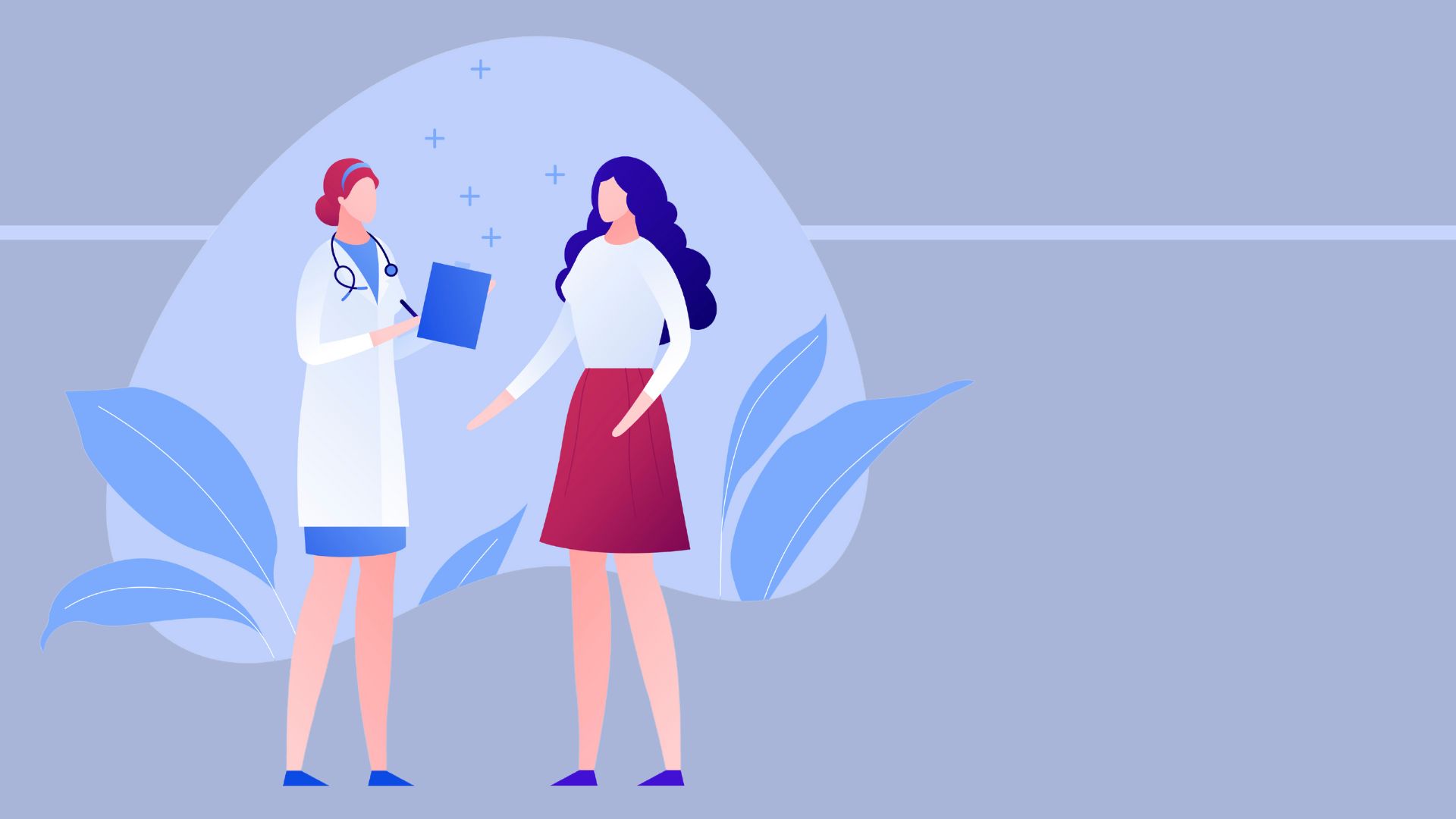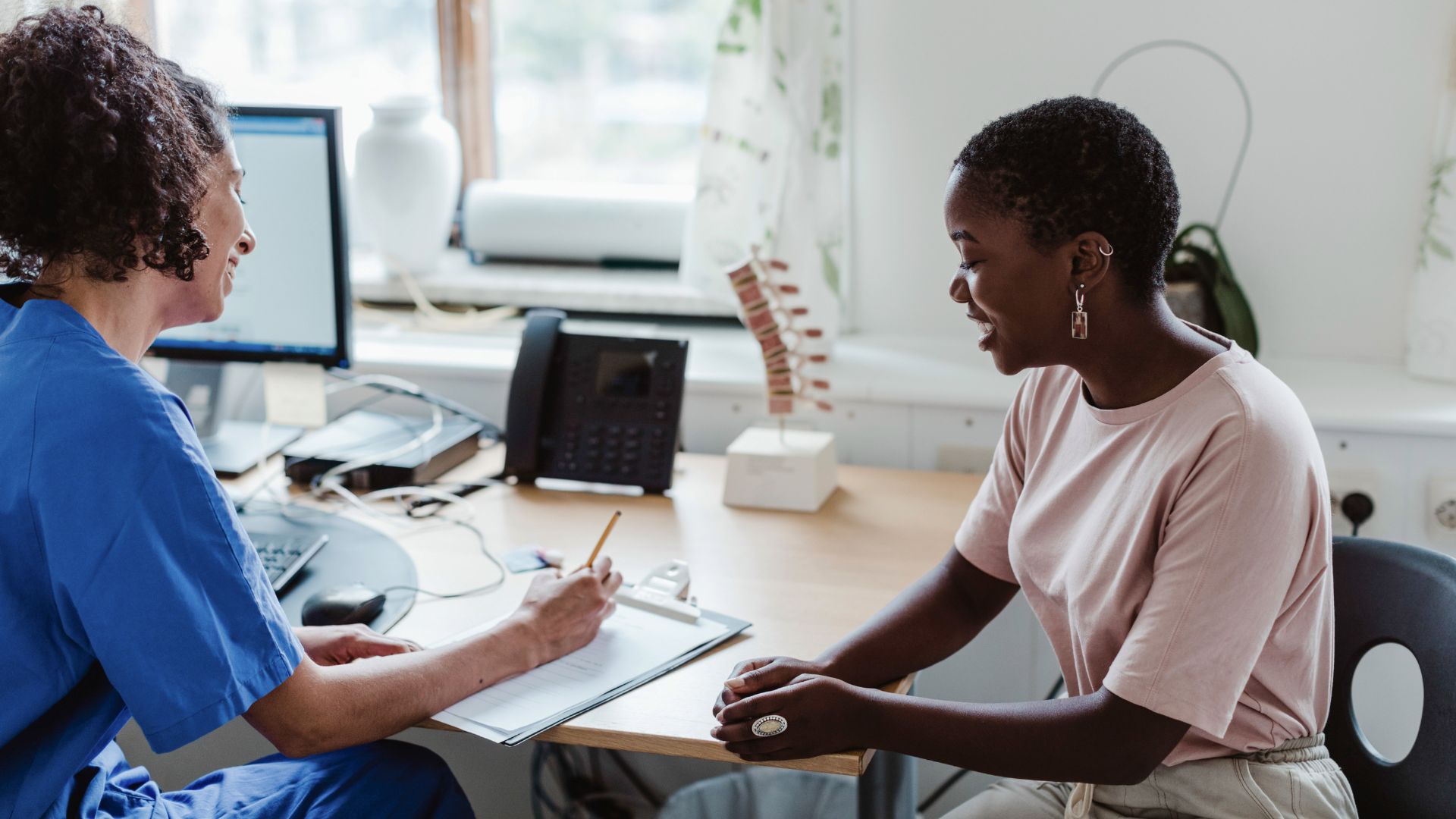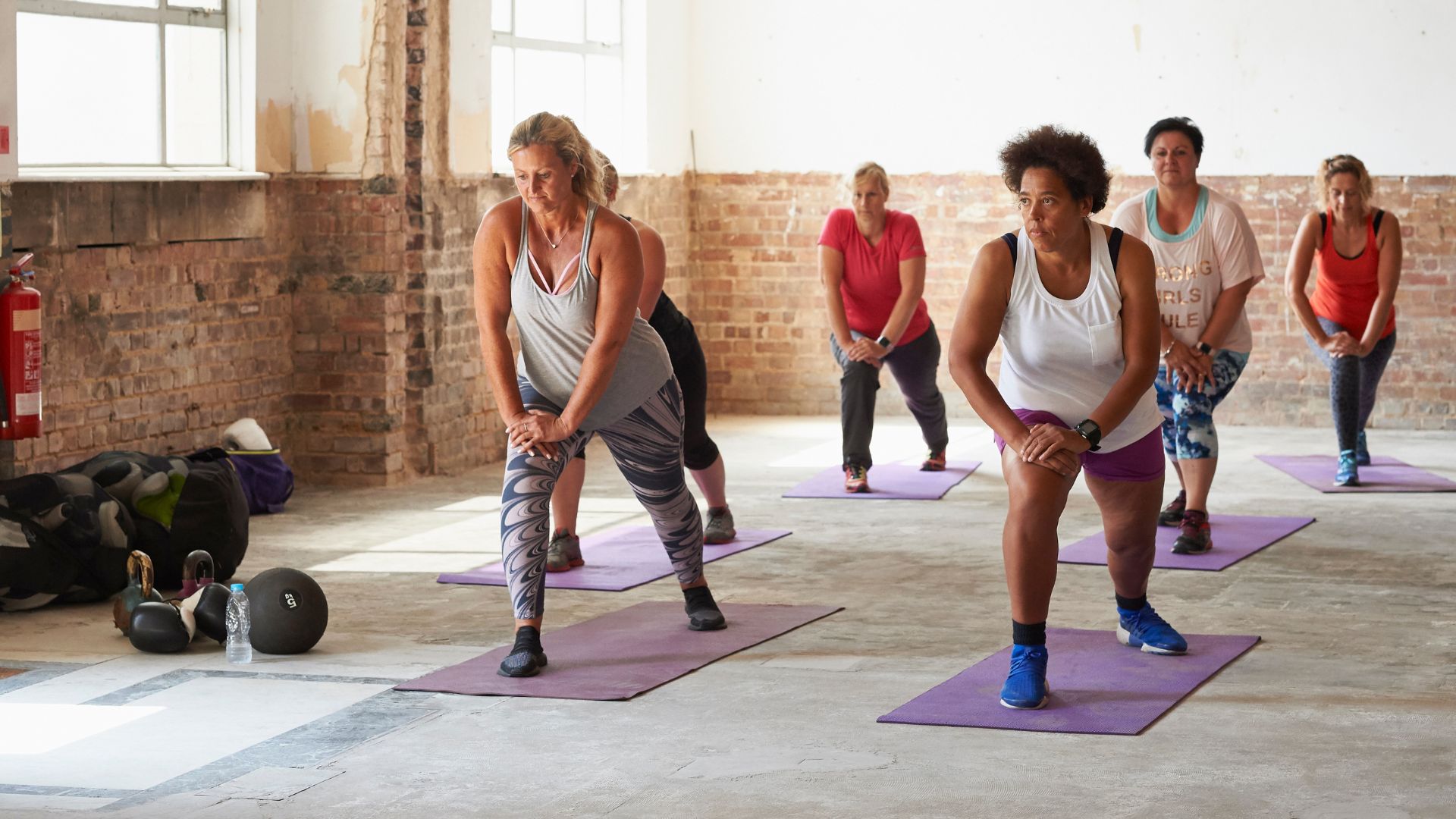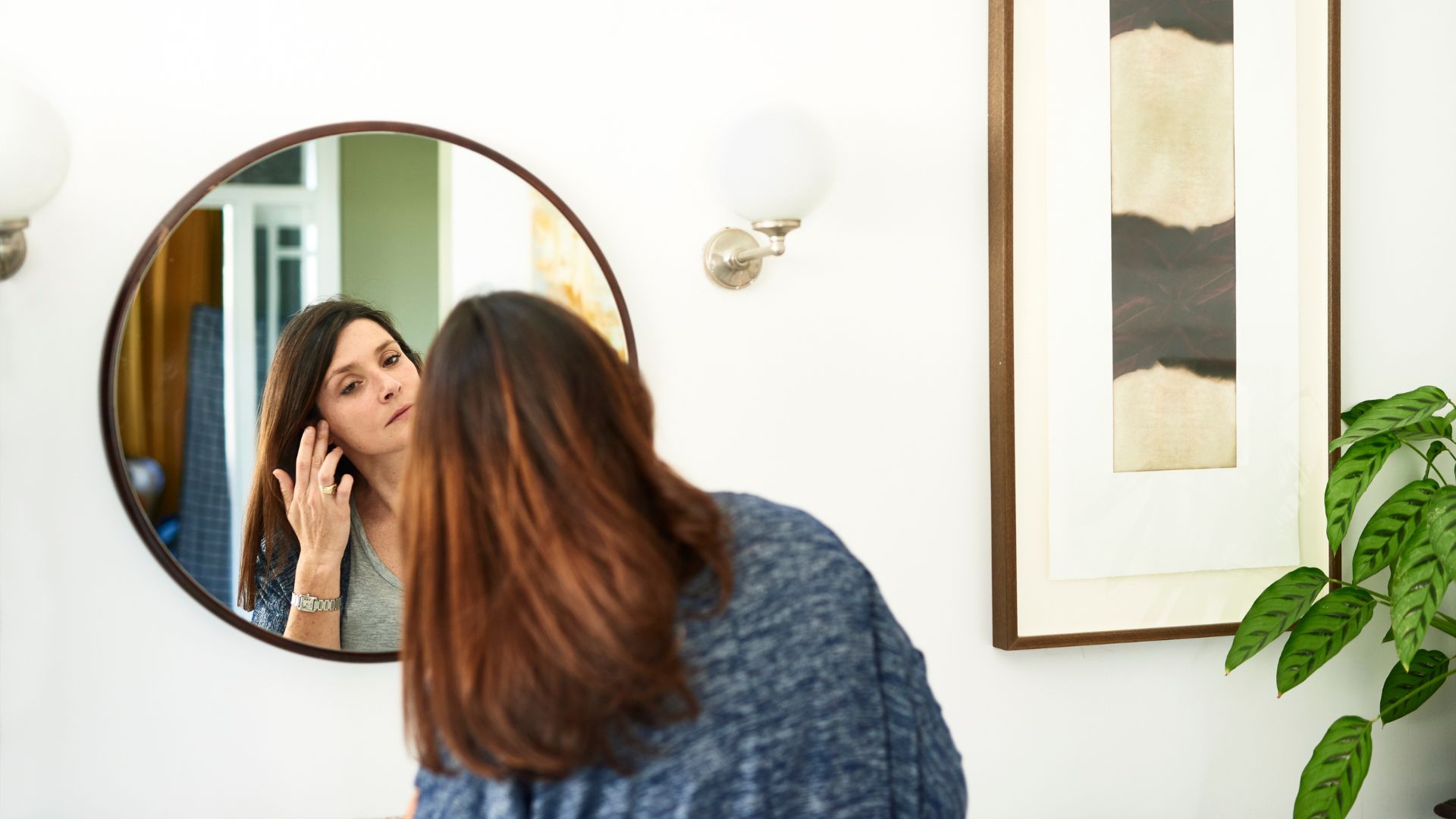What questions should I ask my gynecologist about menopause? Doctors reveal the most important topics
It can be difficult to know what to ask your gynecologist about menopause, here's the most popular topics according to doctors


Looking for questions to ask your gynecologist about menopause? You’re certainly not the only one. While this life stage affects more than half the population around the world, it’s often a subject swept under the carpet and millions of women are left at a loss when it finally happens to them.
Whether you’re heading to your first appointment in the next few days and you’re not sure of the most important questions to ask, or you’ve just started to experience symptoms and want to know what’s in store, woman&home has consulted a range of doctors from gynecologists and general practitioners to skin and hair specialists to give you the lowdown on what to ask at your next visit.
The number one piece of advice from our medical experts? Make an appointment with the gynecologist or doctor when you first start to experience the symptoms of perimenopause or menopause symptoms. Everyone’s experience of the ‘pause’ will be different but getting advice early on is key to having a better experience.
Questions to ask your gynecologist about menopause
1. How do you alleviate symptoms of menopause?
“Common symptoms of perimenopause include anxiety, irritability, insomnia, fatigue, a loss of libido, and a loss of self-confidence,” says Miss Tania Adib, a consultant gynecologist. “Most people experience at least one symptom and look to combat or reduce symptoms, so this is a common question people have and a very good question to ask as there’s plenty of advice that can help when it comes to symptom management.”

2. How long do symptoms last?
Another one, Miss Adib, who works at The Lister Hospital, part of HCA Healthcare UK, says, is: how long do the symptoms of menopause last?
It’s one of the best questions to ask your gynecologist about menopause, she explains, as “everyone is different and it’s hard to determine exactly how long someone might experience symptoms. It could be anything from a couple of months to several years. I would advise women to check in with their GP or gynecologist as they go through menopause as symptoms can change in severity and type throughout.”
3. What about HRT?
Another typical question when it comes to menopause centers around hormone replacement therapy, otherwise known as HRT. “HRT is known to help reduce and stop menopause symptoms, so understandably many women should consider this as an option for them and seek advice from the experts.”
Sign up to our free daily email for the latest royal and entertainment news, interesting opinion, expert advice on styling and beauty trends, and no-nonsense guides to the health and wellness questions you want answered.
4. What impact will the hormone changes have on my body?
“The loss of estrogen at this stage of life contributes to increased risks of menopausal weight gain, bone loss, and even osteoporosis and heart disease,” explains Dr Ginni Mansberg, a leading general practitioner and cosmetic doctor. “All of these can be prevented by simple interventions done at midlife.”
Asking your doctor how to prevent these changes will be key to managing your longer-term health, she explains. “For example, a lot of us find ourselves drinking more, even now the lockdowns have ended. Your doctor can be a great resource to you if you need to cut back.”
Hormonal changes can also take a serious toll on your mental health coming into perimenopause and menopause, she adds, with links established between menopause and anxiety in women with no prior history of the condition by a study from the University of Pittsburgh. If you’re feeling this way, it’s important to discuss your feelings with your doctor as they’ll also be able to help in this department.

5. Why can't I eat specific foods anymore?
It's not uncommon for your diet and preferences to change during menopause. For example, some women find themselves quitting caffeine in menopause because the impact of the drug on their system causes issues such as urinary-tract infections.
Our susceptibility to sugar also changes, says Dr Sohere Roked, a general practitioner who specializes in integrative medicine. "It interferes with our hormones, hindering our stress hormones and causing more inflammation, which makes hot flushes and sleep worse," she says.
But beware of cutting foods out of your diet completely. "Carbohydrates are not a bad thing, especially when your body is under stress like it is when you're in menopause," she warns. "Go for carbs that are non-refined like rice, brown pasta, and sweet potato, which are all balancing."
If you're finding that one particular food item is causing you issues or you want to know more about how your diet might change during menopause, speak to your doctor.
6. How will menopause affect my sex life?
"Menopause can affect mood, cause anxiety, you can be more worried, experience poorer sleep, increase aches and pains, poor concentration, a lower sex drive, vaginal dryness, and urinary symptoms like increased frequency or cystitis," says Dr Roked.
While many people try to fix issues involving their sex life on their own, or with the help of their partner, bodies change during menopause. This might mean you need a little extra outside help. Doctors have heard it all a million times before, so don't be embarrassed to discuss your sex life when you're asking your gynecologist about menopause - and they'll probably bring it up anyway.
7. What screening tests can I have?
The reason why so many doctors want those going through perimenopause and menopause to seek a checkup is two-fold explains Dr Mansberg. “Firstly, to get any symptoms diagnosed and treated. Secondly, so they have the option to start advising critical steps to preserve your mental and physical wellbeing into older age.”
For example, those who enter menopause after the age of 55 have a higher risk of developing breast cancer than those who go through it earlier, research from the University of Oxford and GIET School of Pharmacy reveals. Further studies from Qingdao University reveal that late menopause also increases the risk of endometrial cancer.
To make sure that both you and your doctor can stay on top of any risks, make sure you ask what screening tests are available to you when you create your list of questions to ask your gynecologist about menopause.

8. Are there any simple changes I can make to my daily routine to improve my health later in life?
“Simple interventions can maximize your wellbeing,” Dr Mansberg explains. “For example, weight-bearing exercise for bone health, and steps to get your blood pressure well inside the target range for dementia prevention."
Strength training and increasing how often you lift weights is one of the best for those experiencing perimenopause and menopause, for example. As research from Katowice School of Health Sciences reveals, not only will it help to decrease the risk of conditions like osteoporosis and muscle loss, it can also improve overall symptoms of menopause, including those relating to mental health.
Your doctor will be one of the best-placed people to advise an exercise schedule best suited for your personal needs and fitness level.
9. How will menopause affect my skin?
Unfortunately, estrogen plays such a major role in the body that when we experience a decline in it, it can be very noticeable to us. One of the ways this happens is through the skin’s health and appearance.
“Those going through menopause may experience worsening effects of sun damage,” says Dr Mansberg, who is also the founder of ESK Skincare. “It’s never too late to use sunscreen but estrogen-deficient skin is especially prone to UV damage, which causes all the things we know to come with aging, like dull skin, wrinkles, and fine lines.”
Plus, she adds, “Menopausal skin is often drier and more sensitive. UV rays can cause inflammation, making the dryness, itch, and sensitivity situation worse.”
Consult with your doctor about the changes you can expect to see.
10. How will menopause affect my hair?
In much the same way, hormones change our ocular health as changing levels of estrogen and progesterone can affect the glands in the eyes and eyelids. “Many people know about the most common menopause symptoms like hot flashes and brain fog, however, not many people realize that it can affect your eyes too,” explains Dr Elizabeth Hawkes, a consultant ophthalmic and oculoplastic surgeon. “The hormone changes that occur during menopause can also result in blepharitis, which is a chronic inflammatory condition of the eyelids, and symptoms can include red eye, burning, sticky eyes, excessive watering, ocular discomfort, light sensitivity, and foreign body sensation.”
So, it’s important to discuss these with your doctor or optician too. “The mainstay of treatment at all stages is lid hygiene to control the bacterial build-up. Other treatments such as antibiotics, steroids, and ocular lubrication may also be necessary for different sequelae of the condition,” she adds.

11. How will menopause affect my hair?
Also similarly, menopause sees hormone changes that can have a big effect on our hair as well. "Unfortunately as we age, hair loss can become more prevalent, especially in the lead-up to and directly after menopause," says Dr Shirin Lakhani, an NHS-registered general practitioner, and advanced aesthetic doctor. "NHS England estimates that 50% of people over 65 will experience hair loss. And while this is a completely normal part of the aging process, there are several things that you can do."
Start talking to your doctor about hormone replacement therapy, for instance. "Taking hormone replacement therapy (HRT or BHRT) can slow down or even stop hair loss in some women," she says. “Non-hormonal options, including PRP treatments and LED light therapy, and supplements such as Viviscal Pro, can be beneficial.”
What happens during your first appointment?
If this is the first time you're talking to your doctor about menopause and what happens when you're postmenopausal, they'll be expecting to hear your questions but also be prepared with a lot of information themselves, says Dr Adib.
During your appointment, your doctor will likely discuss the following, so if you forget to ask a question about it, they should cover it:
- Stages of menopause
- Most common symptoms
- Lifestyle changes that can help your health and wellbeing
- Types, benefits, and risks of treatment like HRT
- How menopause may affect your future health
"Gynecologists are there to help provide advice and support for people going through the menopause, so no question is off bounds," she assures. "In fact, I would encourage people to ask any question they have. It's most important to speak about symptoms, especially any which are impacting your daily life and ask how you might be able to manage them."

Grace Walsh is woman&home's Health Channel Editor, working across the areas of fitness, nutrition, sleep, mental health, relationships, and sex. She is also a qualified fitness instructor. In 2025, she will be taking on her third marathon in Brighton, completing her first ultra marathon, and qualifying as a certified personal trainer and nutrition coach.
A digital journalist with over seven years experience as a writer and editor for UK publications, Grace has covered (almost) everything in the world of health and wellbeing with bylines in Cosmopolitan, Red, The i Paper, GoodtoKnow, and more.